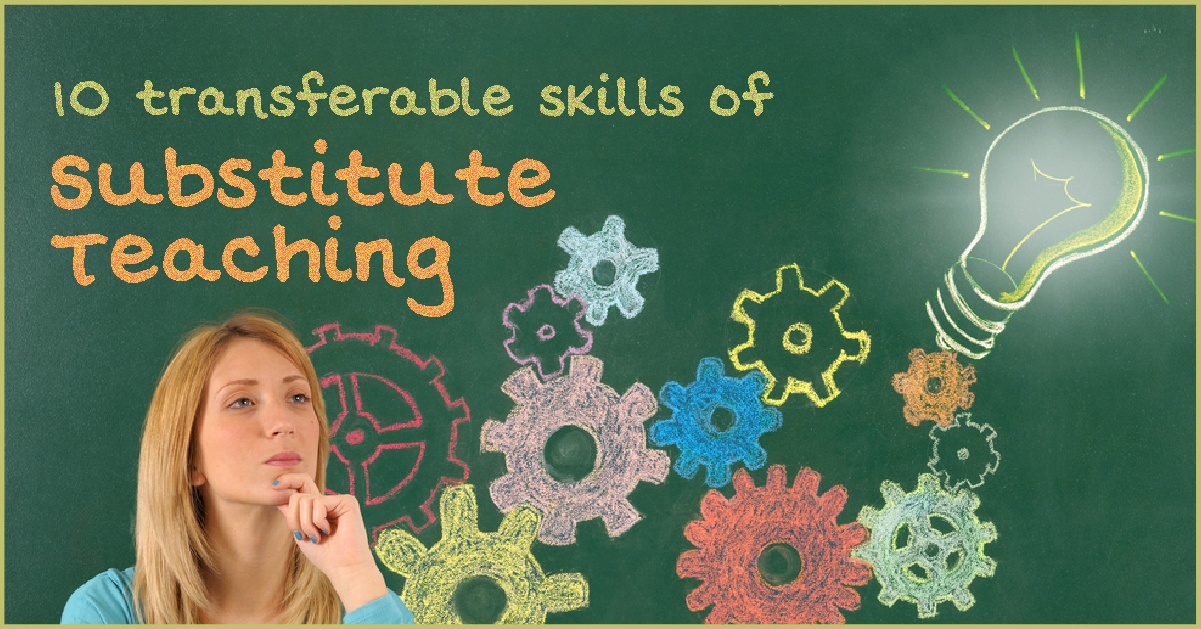
It’s no secret that substitute teaching is a logical job choice for those seeking a career in education. But even if your long-term career goals fall outside the education realm, substitute teaching is still an excellent job option due to the wealth of transferable skills you will gain – skills that will give you an edge in both your professional and personal life!
1. Accountability
Being personally responsible for a whole classroom of children can quickly help you reach a new level of accountability. Hitting snooze six times and walking in late or hiding behind your laptop when you’re not feeling 100% is not an option. Substitutes must be punctual and mindful all day long.
2. Adaptability
Each day, substitutes must quickly adapt to working in a new setting with different age groups in various subjects. Not to mention, interruptions that force you to stray from your schedule are a given. You’ll become more adaptable and flexible in no time.
3. Public Speaking
Substitute teaching can help you ease into public speaking since it’s often less intimidating to speak in front of children. You’ll boost your level of comfort and confidence while improving your ability to project, articulate, and engage with an audience.
4. Problem-Solving
Whether a student gets hurt on the playground, you’re missing some materials needed to complete a task, or the pencil sharpener suddenly stops working, substitutes are presented with a multitude of unanticipated “hiccups” every day. You’ll quickly improve your ability to think on your feet!
5. Time Management
Subs have a list of activities to accomplish throughout a brief and divided period of time. While you instruct students and manage the classroom, you must pay close attention to the school schedule and get your students where they need to be in an organized fashion.
6. Instructing
No matter your career path, at some point you will need to train another person. Substitute teaching exposes you to a variety of effective instructional strategies and ways to differentiate instruction to best suit people who learn in different capacities.
7. Networking
Subs that want to work frequently must learn the art of networking. If you perform well and make it a point to interact with other teachers and school administrators while on assignment, you’ll become a highly-desired substitute who gets specifically requested to fill future absences.
8. Working with Children
Substitutes gain valuable insights on child psychology and development. Even if you don’t plan on pursuing a child-centered career, working with children at some point in your life can help you become a more effective parent or caregiver.
9. Creativity
Subs are generally provided with lesson plans and materials, but there’s always room to add creativity in the classroom. Whether it’s looking for a fun and creative way to engage your students or establishing an incentive for good behavior, you’ll find yourself thinking outside the box more than ever!
10. Mediation
It’s a child’s nature to have easily hurt feelings or quarrel with peers, but students can’t learn when they’re worried about such personal issues. Substitute teachers get a crash course in conflict resolution, not to mention practice with patience and empathy.
All in all, substitute teaching is rewarding and meaningful work through which you’ll acquire many marketable skills in areas you might not otherwise be exposed to. Make sure to check out our other blogs about 7 Line-Up Strategies for Orderly Hallway Transitions and 5 Ways to Calm Students After Recess.
